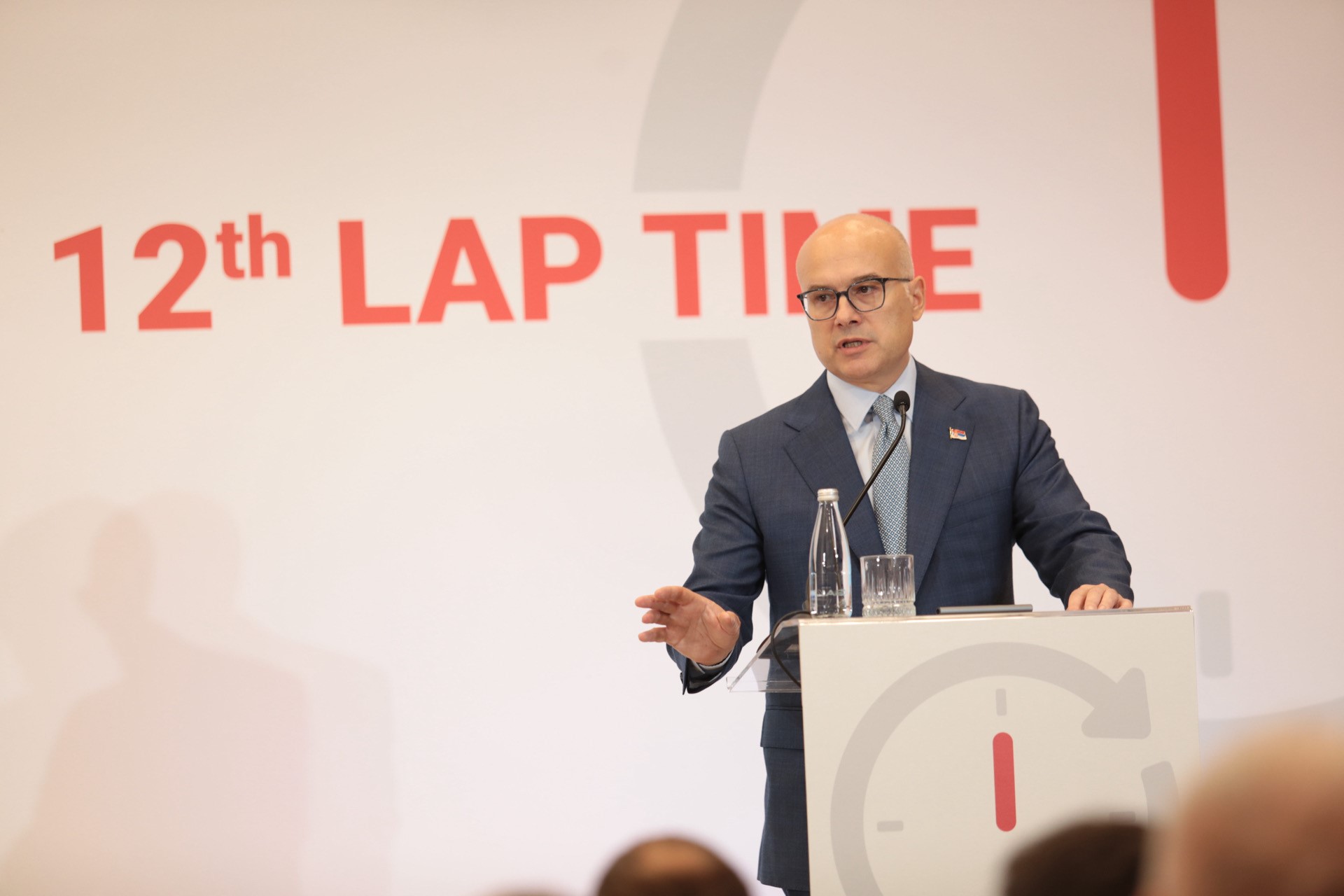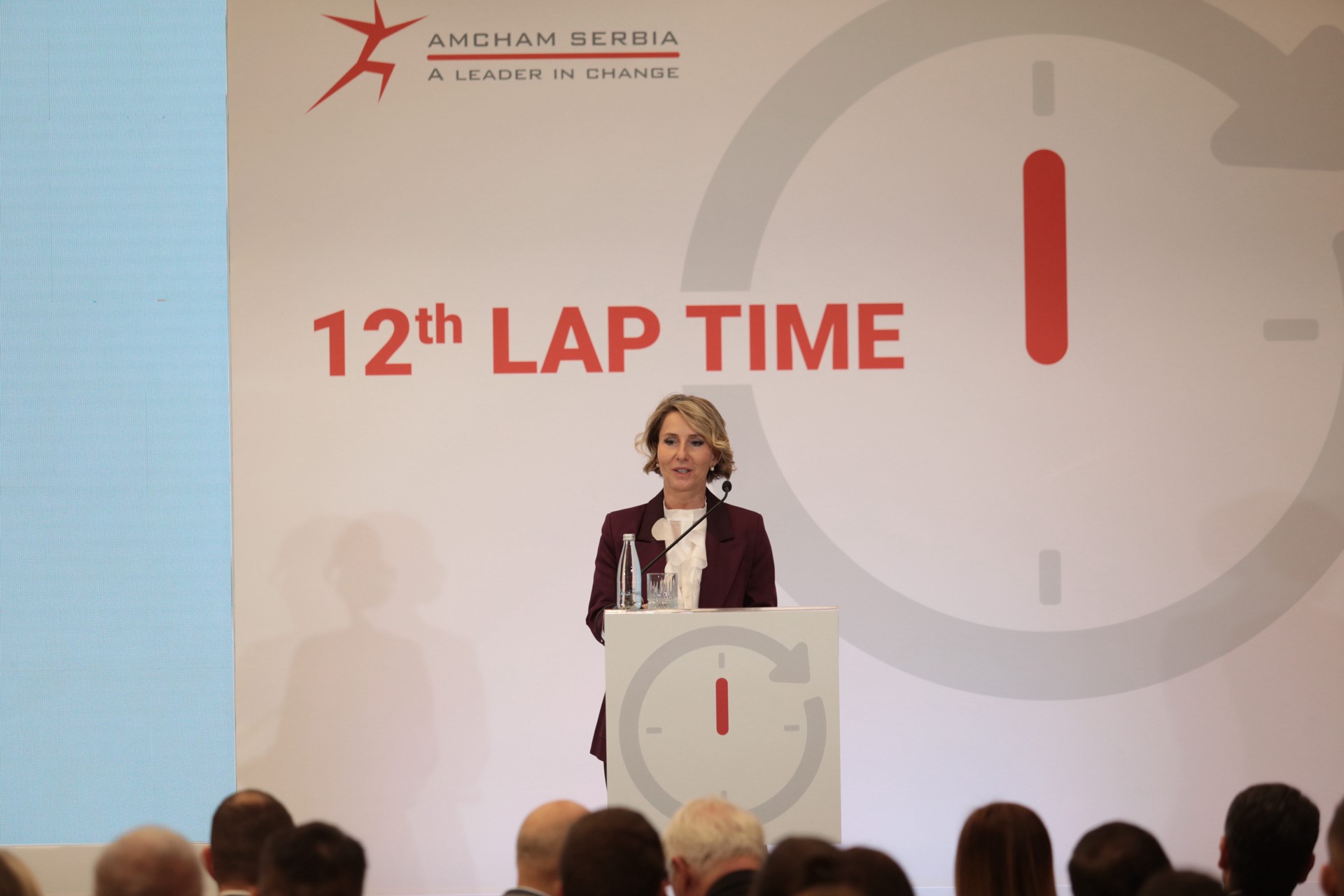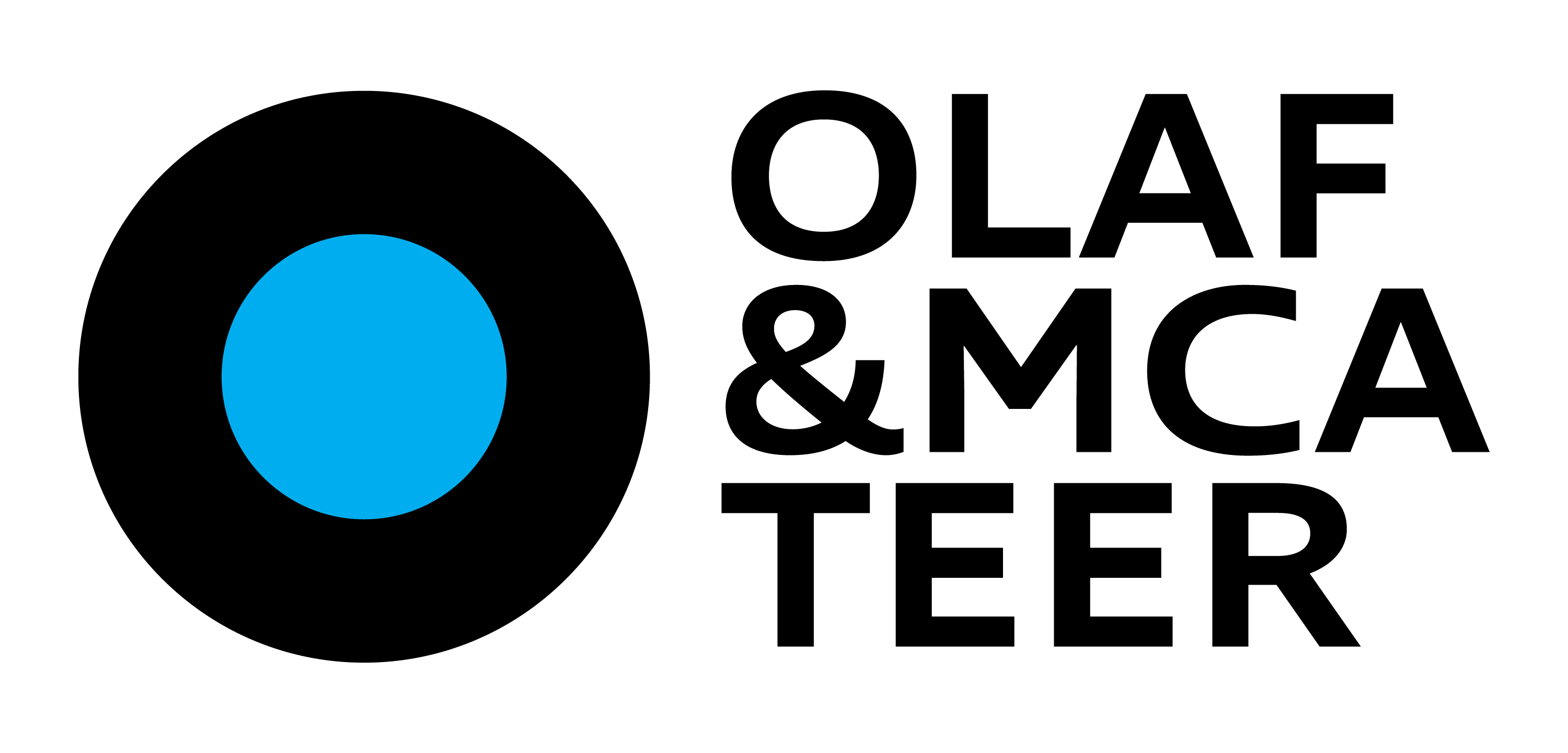
Three-quarters of AmCham members plan to expand their operations and make new investments in 2025
Priorities for long-term growth: investment in education and modernization of labour legislation, reduction of corruption and the grey economy, rule of law and judicial efficiency, digital transformation and development of e-government, and implementation of the green agenda.
AmCham member companies express moderate satisfaction with the business climate in Serbia, rating it a 3 out of 5 in the annual AmCham survey on business climate and investor confidence, known as the “Twelfth Lap Time.” The survey reveals a gradual increase in satisfied and a decrease in dissatisfied members, reaching the highest satisfaction and lowest dissatisfaction levels since the survey’s inception in 2013. Similarly, small and micro enterprises, though not AmCham members, share the views of larger companies, rating the business climate 2.8.
On the other hand, when asked about business performance in 2024, both AmCham members and smaller businesses reported exceeding expectations, with results surpassing those of the previous year. “The good news is that the economy this year has achieved business results comparable to 2019 levels, indicating a gradual recovery after global disruptions from the COVID pandemic and the war in Ukraine. To maintain and accelerate this trend, it is crucial to continue working with the Serbian government on accelerating institutional reforms,” stated Stefan Lazarević, President of AmCham Serbia. He highlighted key reform areas, including judicial digitalization and the introduction of e-courts, recognizing electronic documents in employment records, further regulatory improvements to encourage green energy investments, and modernizing labour legislation to meet the evolving needs of the labour market.
Lazarević added, “AmCham will consistently support reform efforts, regional and European integration, and strengthening economic ties with the United States. We will also remain Serbia’s strongest ambassador as an attractive investment destination.”

Prime Minister Vučević emphasized that the Serbian government sees AmCham as a partner in addressing challenges to create a better business environment. “The survey results are encouraging for us but also a responsibility. Three-quarters of AmCham members see opportunities for investment expansion in 2025, and while this year’s rating of 3 is positive, we aim for an even better score next year. The Serbian government is working with AmCham to create a stable, efficient, and predictable business environment.”
2025 Business Projections Show Optimism
There is notable optimism for 2025, with around three-quarters of AmCham members planning to increase operations and make new investments, while half anticipate workforce expansion. Small and micro enterprises are slightly more cautious, though a record-breaking half expect business growth, and a third foresee hiring new employees, the highest level in the survey’s history.
Workforce Availability Remains the Biggest Challenge
As in previous years, workforce availability is seen as the top challenge, evidenced by unmet expectations in employment growth for 2024, indicating a growing demand for skilled labour. Companies highlighted high wage and benefit expectations, a shortage of qualified talent in the local market, and high tax burdens as major concerns. Small and micro businesses primarily recommended reducing labour tax burdens to address these issues. In contrast, larger AmCham companies emphasized the importance of investing in the education system to support their long-term strategies and specific talent needs. Both AmCham members and smaller businesses consider education a primary area for government focus to drive economic growth.
On the other hand, last year’s biggest challenge—high inflation—has notably decreased in importance, suggesting a stabilization of macroeconomic conditions both domestically and globally.

Long-Term Reform Priorities
For more than six years, AmCham members have consistently identified reducing corruption and establishing the rule of law and an efficient judiciary as the top reform priorities for the Serbian government to improve the business environment. Nearly half of AmCham companies also emphasize the development of e-government, digital transformation, and implementing the green agenda in energy and environmental protection as key reforms.
The need for greater flexibility in labour regulations, allowing adaptation to modern work conditions and new forms of employment, is also becoming increasingly important. After a decade-long decline, the number of companies prioritizing this has returned to high levels seen in 2014, highlighting a need for labour law modernization. Smaller businesses, however, place the highest importance on improving the transparency and predictability of the tax system and the efficiency of the Tax Administration.
About the Survey
AmCham conducted the “Twelfth Lap Time” survey in collaboration with Ipsos Strategic Marketing from July to October 2024. AmCham members, primarily medium and large companies, completed online questionnaires, and a series of face-to-face or video interviews were also conducted. The survey also included a sample of non-AmCham members—small and micro-enterprises—allowing for a comprehensive view of the business climate and identifying steps necessary for faster economic growth.
Related posts
A1 Serbia launches educational game to promote online safety for children
This initiative is part of A1 Serbia’s broader ESG strategy, aimed at ethical technology use
Pet Day: Mars reminds us of the importance and benefits of pet adoption
362 million dogs and cats worldwide currently live on the streets or in shelters
IKEA unveils new edition of Its iconic STOCKHOLM collection
The latest edition features a wide range of furniture, textiles, lighting, and decorative pieces




